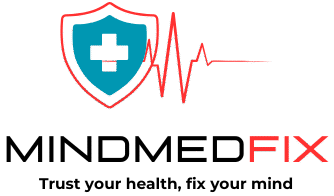In a culture with its back to the wall of ever-increasing health trends, quick fix crazes, and ever-fluctuating diets, one thing alone remains unchanged: nutrition is the foundation upon which rests the quest for health and wellness. Food is more than just fuel—it is medicine, it is culture, and one of the foremost predictors of quality of life. It’s only when individuals see the might of the nutritional impact on body, mind, and spirit that they become interested in achieving wellness through optimal dietary intake.
This article considers the role of nutrition in the provision of health and wellness, showing how evidence-based nutrition can prevent disease, prolong life, and enhance overall health.
1. What Is Nutrition?
Nutrition is the science of how foods and living organisms interact with one another. They all promote life and health – carbohydrates, proteins, fats, vitamins, minerals, and water. With proper nutrition, the body’s physiologic processes are maintained through all that is required in terms of relation.
In its most basic terms, nutrition isn’t necessarily a food issue; it’s an issue of eating a good balance of food on a regular basis that generates physical and mental health. It has ramifications on everything from energy and immune strength to sleep level and mood.
2. The General Health-Nutrition Relationship
2.1. Disease Prevention
There is very strong epidemiologic evidence and evident in the association between diet, as of poor quality, and etiology of such disease as:
• Cardiovascular disease
• Type 2 diabetes
• High blood pressure
• Obesity
• Some cancers
On the other hand, intake of diets with high fruit, vegetable, whole grain, lean protein, and healthy fat intakes has good associations with reduced risks of such diseases.
For example, the lower levels of olive oil, fish, legume, and vegetable are included in the Mediterranean diet of lower heart disease and higher longevity. Similarly, the DASH diet (Dietary Approaches to Stop Hypertension) is also based on reduced levels of sodium and potassium, which are helpful for the heart.
2.2. Weight Management
Healthy nutrition is key to a healthy weight and sustaining it. Overconsumption of processed foods, particularly foods with added sugars in excess and unhealthy fat, are among the top weight gain culprits. Whole foods, however, control hunger and allow for metabolism. Satiation-inducing foods with high-fiber and high-protein content ensure portion control and calorie balance.
The inclusion of dietary change with regular exercise can also enhance weight control outcomes.
2.3. Digestive Health
Foods that are high in dietary fiber such as fruits, vegetables, beans, and whole grains are smooth digesters and even out energy. Fiber keeps the bowel movements regular and aids in diverse gut bacteria for digestive and overall well-being.
The probiotic intake in the form of yogurt, kombucha, and fermented vegetables is also a driving force behind enhanced nutrient uptake as well as a healthy gut. Proper hydration and stress control are as critical in keeping the digestive system healthy.
3. Nutrition and Mental Wellness
The relationship between food and mood is better understood both scientifically and clinically. The brain, being a part of any other organ, needs proper diet to perform properly. Here is how diet influences mental health:
3.1. Brain Function and Cognitive Performance
Omega-3 fatty acids, whether from fatty fish or flaxseed, are taken in to preserve the brain function and sanity. B vitamins, specially the B6, B9 (folate), and B12, are responsible for neurotransmitter manufacturing and processes of the brain.
Antioxidants like vitamins C and E shield brain cells against oxidation. Flavonoid-rich diets like berries and dark chocolate have been found in recent studies to keep the mind in sync.
3.2. Mental health disorders
Ultra-processing and extreme intake of refined sugars have been linked to increased risk for depression and anxiety. Insufficient nutrients such as magnesium, zinc, iron, and vitamin D can heighten symptoms of mood disorder.
Nutritional psychiatry is a new discipline which is looking to consider the therapeutic potential of diet on mental illness. Action indicated is:
- Consume high fruit and vegetable diversity
- Less intake of processed food and fast food
- Intake of fermented foods like kimchi, kefir, and yogurt for better communication between gut and brain
Restriction of alcohol and caffeine, moderation, and following regular eating patterns for mood and energy stabilization are also taken.
3.3. Gut-Brain Axis
Gut-brain axis is a complex system of interaction between the brain and the gut via the vagus nerve and other biochemical signals. An ill gut microbiome can damage cognitive function and mood, justifying the use of probiotics and prebiotics.
Plant food fiber feeds beneficial gut bacteria that yield chemicals influencing brain function and emotional states.
4. Micronutrient Significance
Macronutrients (fats, proteins, and carbohydrates) yield energy, whereas micronutrients (vitamins and minerals) are crucial to hundreds of physiological processes.
Examples are:
• Iron: supports oxygen transport and avoidance of anemia
• Vitamin D and calcium: supports bone health
• Zinc: supports immune function and healing
• Magnesium: supports muscle and nerve function
• Vitamin A: supports vision and immune function
Lack of these nutrients can cause serious health issues even in the presence of adequate caloric intake. Periodic health check-ups and nutritional evaluation can identify and correct such deficiencies at an early level.
5. Personalized Nutrition: One Size Doesn’t Fit All
Nutritional requirements differ significantly according to age, gender, activity level, genetics, and medical conditions. For instance:
- Athletes might need higher protein and calorie intake
- Pregnant women require extra folic acid, iron, and calcium
- Older adults require more vitamin B12 and calcium as absorption is less
Individualized nutrition has become possible and facilitated by this trend with the onset of nutrigenomics and other cutting-edge technologies. Technological tools such as metabolic tests, microbiome profiling, and genetic testing can be used by registered dietitians to create individualized nutrition programs that can maximize beneficial impacts on health.
6. Six Steps to Improved Nutrition
Improved nutrition is all about making incremental changes. Rather, incremental, long-term changes actually deliver enormous gains in overall health:
6.1. Focus on Whole Foods
Make whole foods like vegetables, fruits, whole grains, beans, lean proteins, nuts, and seeds the staple of your diet.Intake of whole foods versus processed food intake is the pillar of a healthier diet.
As an initial step, exchange sweets for fruit or exchange refined grains for whole grains.
6.2. Balance Your Plate
Make MyPlate your plate guide:
- Vegetables and fruits: half
- Whole grain: one-quarter
- Lean protein: one-quarter
- Include a serving of dairy or its calcium-fortified alternative
Include a variety of protein sources, some from plants such as beans, tofu, and lentils.
6.3. Drink Plenty of Fluids
Water is involved in nearly all body functions, such as digestion, circulation, and temperature regulation. Drink at least eight cups daily, varying with climate and activity.
Add a slice of fresh fruit, fresh herbs, or cucumber to make the taste more appealing.
6.4. Read Nutrition Labels
Check food packaging to understand quantities of added sugars, salt, unhealthy fats, and artificial additives. Opt for fewer ingredients, less additive, and more balanced portion products.
6.5. Eat Considerately
Eat slowly and sitting down. Take your time while eating, listen to hunger and satisfaction cues, and avoid TV or phone calling. Mindful eating strengthens digestion, enjoyment, and perception of portion size.
7. Special Populations Nutrition
7.1. Children and Adolescents
Nutrition is especially crucial during the growth stage and development years. Healthy eating habits of quality food in childhood and adolescence will prevent chronic disease and lead to lifetime well-being.
Involve children in meal planning, expose children to various colors of foods, and model healthy food choices.
7.2. Older Adults
Aging has an effect on nutrient consumption, appetite, and taste. The elderly must take great care regarding nutrient-rich food, and adherence to vitamin B12, calcium, and vitamin D consumption.
Texture-modified food and fluid intake should increase augmented intake and digestion in the elderly.
7.3. Chronic Illness Patients
Individualized nutrition treatment can decrease diabetes, cardiovascular illness, and renal illness. A registered dietitian’s clinical nutrition treatment can increase treatment and overall quality of life.
8. General Nutrition Myths
Misinformation should be debunked. General myths are:
- “Carbohydrates are harmful.”– Nutritionally intact whole food sources such as fruits, legumes, and grains are vital for well-being.
- “Fat causes weight gain.” – Sound fats found in avocados and nuts play essential roles in hormone creation and cardiovascular health.
- “Supplements can replace meals.” – Supplements are helpful in treating deficiencies but cannot be used as a substitute for full, whole-food meals.
Knowing that all calories are not equal, and knowing the value of nutrient density, is central to making educated decisions.
9. Social and Cultural Dimensions of Nutrition
Food is not just fuel—it is inextricably linked with culture, tradition, and identity. Culturally appropriate nutrition counsel is more effective and empowering. Also critical are system barriers like:
- Food deserts with restricted access to fresh fruits and vegetables
- Economic issues affecting food affordability
- Aggressive marketing of unhealthy foods, particularly to children
They range from community gardens and school lunch programs to equitable food policies ensuring everyone has access to healthy, culturally acceptable foods.
10. Conclusion: Building a Lifetime Relationship with Food
Nutrition isn’t about perfection or regulations. Nutrition is nourishment, equilibrium, and viability. Through fooding in a way that brings the body and brain sustenance, humans have the potential to establish a more whole and gratifying existence.
No matter if you’re beginning from scratch or building on what you’re already doing, remember this: each meal is an opportunity to invest in yourself.
Read About Mental Health Stigma in the U.S.: Causes and Solutions
Checkout our Facebook Page




